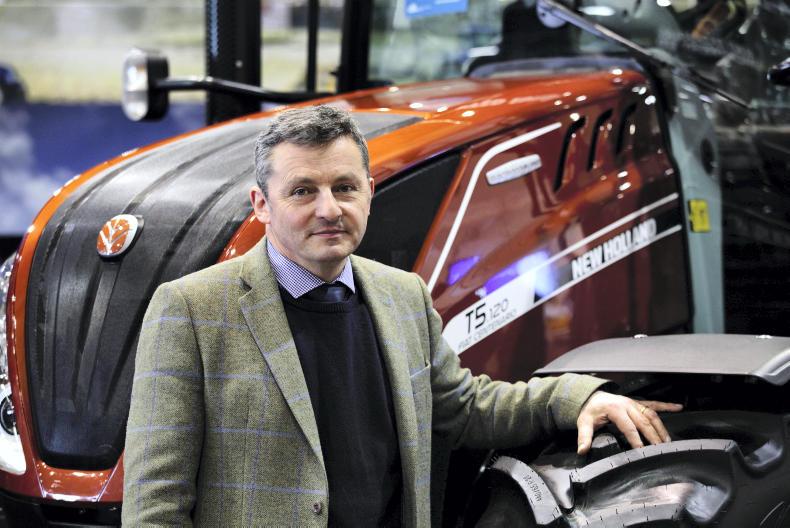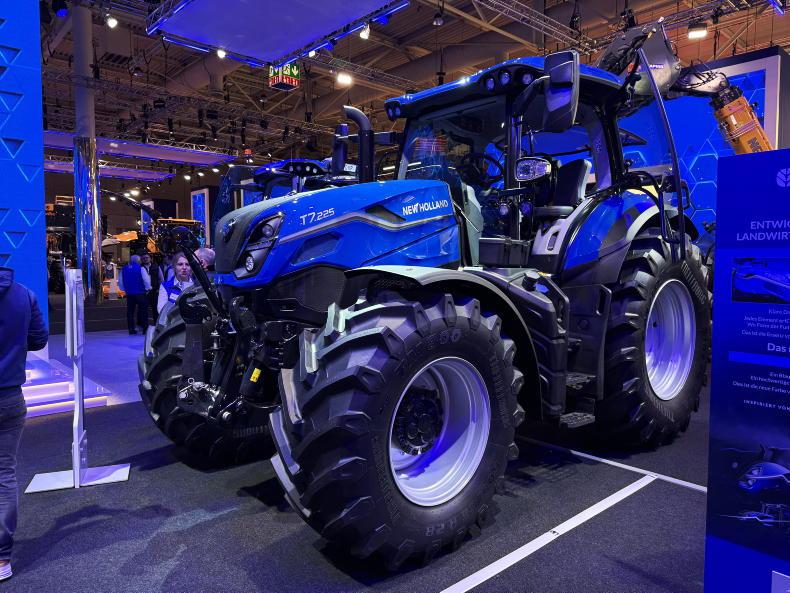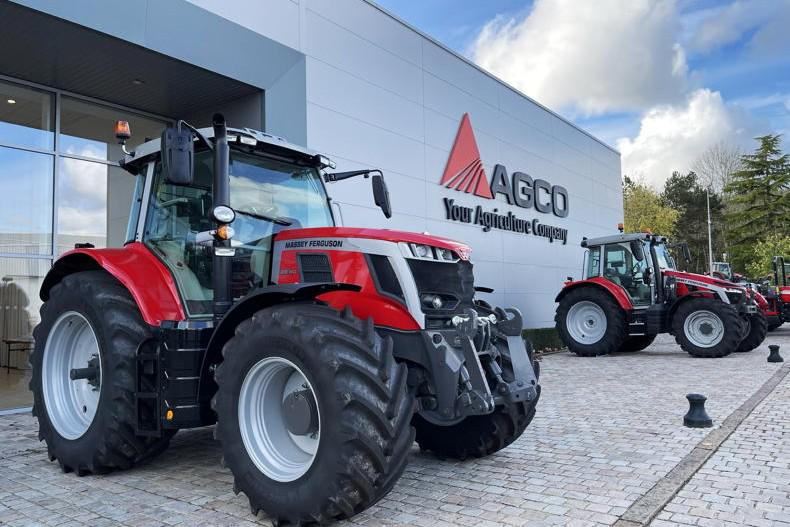Most international exhibitors at this week's FTMTA farm machinery show operate here through a "UK and Ireland" unit, which has always considered both islands as a unified market for tractors, spare parts and other products.
A no-deal Brexit would challenge this head-on, and the companies have been working through a staggering maze of logistical and financial implications.
Maybe some of our work is in vain, but we'll be happy with that
They say they are ready – all still without knowing exactly what will happen on 29 March.
"Maybe some of our work is in vain, but we'll be happy with that," said Trevor Tyrrell, chief executive of Claas UK & Ireland.
Next week, the company will run its first shipment through a new supply route to Ireland.
"For this harvest, all machines from Germany, our combine harvesters, our forage harvesters will be shipped directly from Rotterdam straight into Dublin port, avoiding the UK ports completely, and that's the only way we can guarantee that supplies will be in on time," said Tyrrell.
Claas UK and Ireland is also scrambling to have 70% of the machines ordered for this year delivered by 29 March, instead of 50-60% usually.
Case IH, too, has been stockpiling "a significant amount" of machines and spare parts in addition to usual stocks.
At Massey Ferguson, the AGCO factory on the continent has established a priority system for tractors destined for the UK and Ireland.
"We're working with our factory in France in Beauvais where we will have build slots available to us to make sure that we can get tractors this side of the water – both sides of the water – into place for the end of March," said Joe Ford, tractor sales manager for Massey Ferguson UK & Ireland.
We can flick a switch and change the sourcing on that to come from our European warehouse, which is a regional warehouse to come into Ireland – there's a cost on that
Meanwhile, John Deere is well used to shipping whole machines in and out of the EU, but the company's UK and Ireland sales branch manager Johanthan Henry said that the main challenge would lie in getting spare parts here overnight in an emergency.
"We can flick a switch and change the sourcing on that to come from our European warehouse, which is a regional warehouse to come into Ireland – there's a cost on that," he said, with other solutions under consideration to reduce the distance parts would have to cover by air freight after a hard Brexit.









SHARING OPTIONS